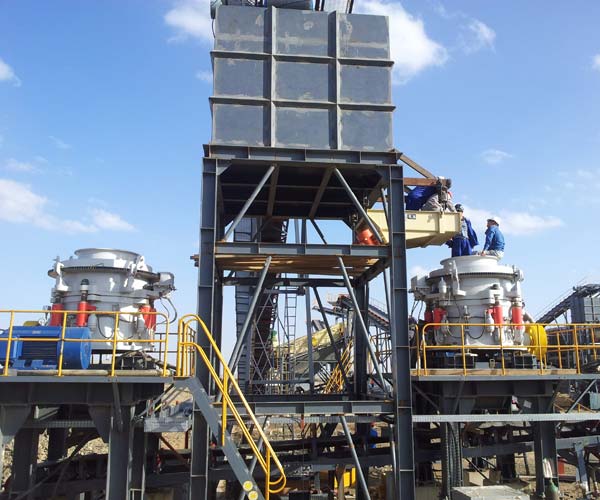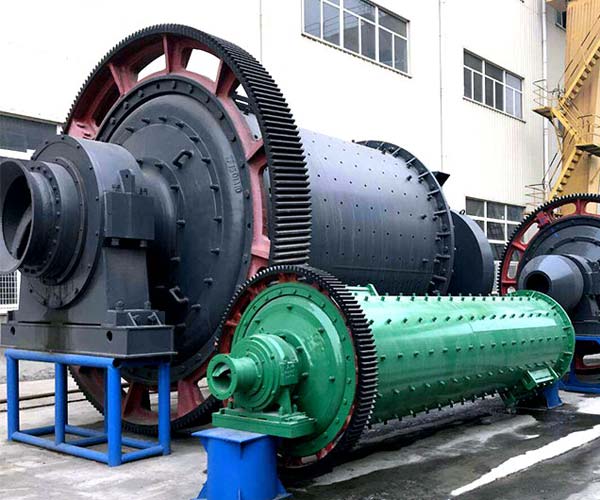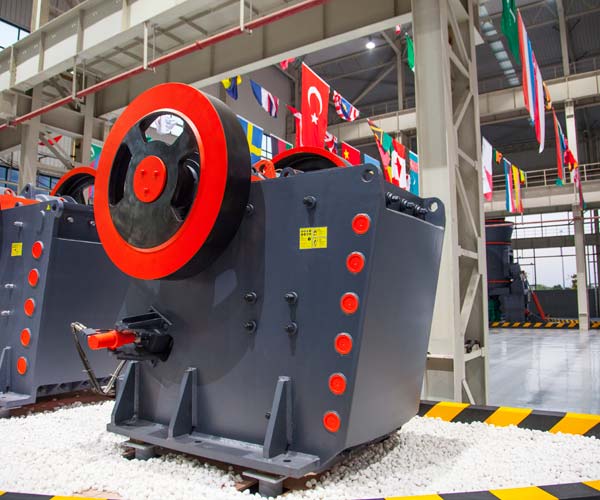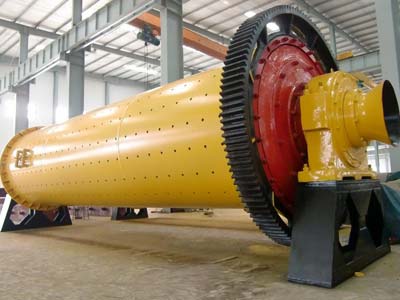
Copper ore is a naturally occurring mineral resource that contains copper metal in varying amounts. It is typically found in large deposits underground or near the Earth’s surface, and is often mined and processed to extract the copper metal.
24 Online Service

Copper is an important industrial metal and is used for a wide range of applications, including electrical wiring, plumbing, construction, and electronics. Some of the largest producers of copper ore are Chile, Peru, China, the United States, and Australia.
Copper ores are typically mined from the earth’s crust using open-pit or underground mining methods. Once extracted, the copper-containing ore must be processed to remove impurities and obtain the desired copper concentration. Several methods are available for copper ore processing, each with its advantages and limitations.
Froth flotation is a widely used copper ore processing method that utilizes the differences in surface properties of copper and gangue minerals to separate them. The process involves the addition of chemicals, known as collectors, that selectively bind to copper minerals and form a froth on the surface of the flotation cell. The froth is then skimmed off, leaving behind the gangue minerals.
Froth flotation is an effective method for the separation of copper sulfide minerals from non-sulfide minerals. It is also used to separate copper from other metals such as lead and zinc.
The main advantage of froth flotation is that it is a selective process, which means that only the desired minerals are separated. However, the process can be complex and costly, requiring the use of specialized chemicals and equipment.
Leaching is another common copper ore processing method that involves the use of chemical solutions to extract copper from the ore. The process involves the addition of acid or other chemicals to the ore, which dissolve the copper minerals and form a solution that can be further processed to obtain the desired copper concentration.
Leaching is particularly effective for the processing of low-grade copper ores, which would be uneconomical to process using other methods. The process can also be used to extract copper from waste materials such as mine tailings.
The main disadvantage of leaching is that it can be slow and inefficient, particularly for ores with low copper concentrations. In addition, the process can produce large amounts of waste and require extensive environmental and safety measures.
Electrowinning is a copper ore processing method that involves the use of electricity to extract copper from the ore. The process involves the immersion of an electrode in the copper-containing solution, which causes copper ions to be deposited onto the electrode.
Electrowinning is often used in conjunction with leaching or other processing methods to obtain a high-purity copper product. It is particularly effective for the processing of low-grade copper ores, as it can produce high-quality copper products with a high level of purity.
The main disadvantage of electrowinning is that it can be energy-intensive and require specialized equipment. In addition, the process can produce large amounts of waste, which must be carefully managed to prevent environmental damage.
Smelting is a traditional copper ore processing method that involves the heating of copper ores to high temperatures in the presence of a reducing agent, such as coke or charcoal. The process causes the copper minerals to react with the reducing agent, producing a molten mixture of copper and slag.
Smelting is a highly effective method for the processing of high-grade copper ores, as it can produce high-quality copper products with a high level of purity. The process is also relatively simple and requires minimal equipment.
The main disadvantage of smelting is that it can produce large amounts of greenhouse gases and other pollutants, which can have significant environmental impacts. In addition, the process can be energy-intensive and require significant infrastructure and resources.

Copper ore beneficiation involves a series of processes that aim to extract copper from its ore. The process starts with the mining of copper ore from the earth’s crust. The ore is then transported to a processing plant, where it undergoes various stages of beneficiation.
The first step in the processing of copper ore is crushing and grinding. The ore is crushed into small pieces and ground into a powder. This process is important because it reduces the size of the ore particles, making it easier to extract the copper.
The next step in the beneficiation process is froth flotation. This process separates the copper from other minerals in the ore. A mixture of water, chemicals, and air is added to the powdered ore, causing it to float to the surface. The copper-rich froth is then collected and dried.
After the froth flotation process, the copper concentrate is sent to a smelter. Smelting involves heating the concentrate to high temperatures in a furnace. This process removes any remaining impurities and converts the copper concentrate into a copper matte, a mixture of copper, sulfur, and iron.
The final step in the copper ore beneficiation process is refining. The copper matte is then sent to a converter, where it is mixed with silica, limestone, and oxygen. The converter heats the mixture, causing the sulfur in the copper matte to combine with the oxygen and form sulfur dioxide gas. The sulfur dioxide is then removed, leaving behind pure copper.
Copper ore beneficiation is essential for the production of pure copper. Without this process, copper ore would be too impure to use in many industries, including electronics and transportation. Copper is an essential component in the manufacture of computer chips, circuit boards, and other electronic devices. It is also used in the construction of buildings, bridges, and transportation infrastructure, such as trains and airplanes.
Copper is a widely used metal in various industries, and its applications range from electrical wiring to construction. The extraction of copper from its ores involves several processes, including crushing, grinding, and flotation. In this article, we will focus on the copper ore crushing process and its significance in the production of copper.
Copper ore crushing refers to the process of breaking copper ore into small pieces. In the crushing process, raw copper ore is initially fed into a jaw crusher for primary crushing. The size of the rocks is reduced to about 10 cm in diameter, and then secondary crushing is done in a cone crusher or an impact crusher to further reduce the size of the rocks to about 3 cm or less.
The crushed copper ore is then sent to a ball mill for grinding, where it is further ground into a fine powder. The powdered copper ore is then mixed with water and chemicals, such as collectors and frothers, to facilitate flotation. The mixture is then agitated, and air is blown through it to create bubbles. The copper minerals attach to the bubbles and float to the surface, where they are collected and sent for further processing.
The copper ore crushing process is a critical step in the production of copper. The purpose of crushing the ore is to reduce its size and prepare it for further processing. The smaller the size of the ore, the more efficient the extraction process will be. Crushing the ore also helps to liberate the copper minerals from the gangue minerals, making it easier to separate them during flotation.
The copper ore crushing process is also important because it affects the quality and quantity of copper that can be extracted. If the ore is not properly crushed, it can result in low copper recovery rates and high operating costs. In addition, the crushing process can also impact the environment if not done properly. Dust and noise pollution are two common concerns associated with crushing operations.
The equipment used in copper ore crushing process varies depending on the size of the copper ore and the desired final product. The most common types of equipment used in copper ore crushing include jaw crushers, cone crushers, impact crushers, and ball mills.

Jaw crushers are used for primary crushing of copper ore. They are designed to handle large rocks and can process up to 1000 tons of ore per hour. Cone crushers and impact crushers are used for secondary crushing of copper ore. They are designed to produce a finer product and can process up to 300 tons of ore per hour.

Ball mills are used for grinding copper ore into a fine powder. They can process up to 5000 tons of ore per hour and are the most common type of equipment used in copper ore processing plants.
The copper ore crushing process can have a significant impact on the environment if not managed properly. The production of dust and noise pollution are two common concerns associated with crushing operations. Dust can be generated during the crushing process, and if not controlled, it can lead to respiratory problems for workers and nearby residents.
Noise pollution is also a concern, as crushers and other equipment used in the process can produce high levels of noise. This can lead to hearing loss for workers and can also impact the quality of life for nearby residents.
To mitigate these environmental impacts, copper ore crushing operations must be managed carefully. Dust control measures, such as the use of water sprays or dust suppression systems, can help to minimize dust emissions. Noise control measures, such as sound barriers or mufflers, can also be used to reduce noise pollution.
Our Projects
Copyright © ZENITH, All Right Reserved.
